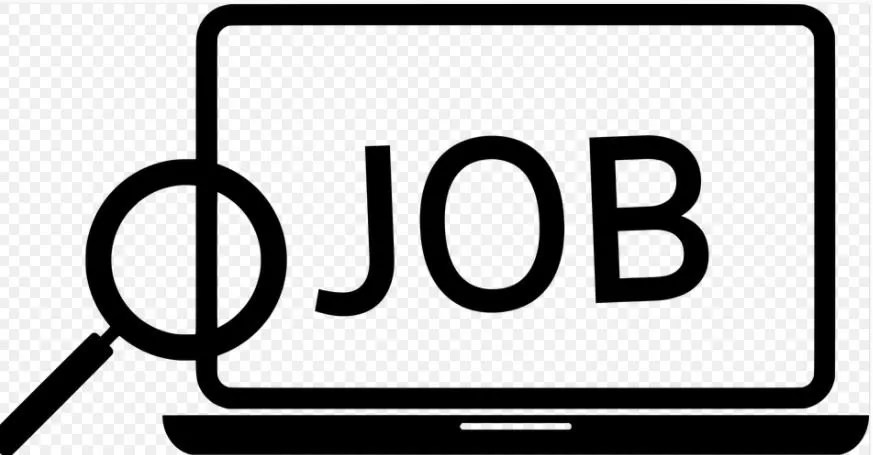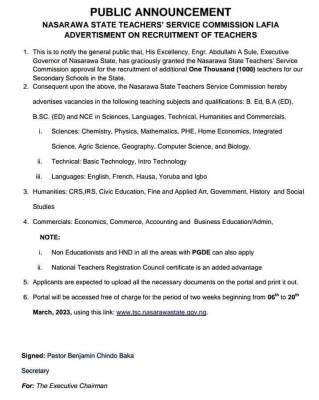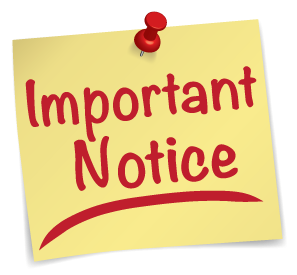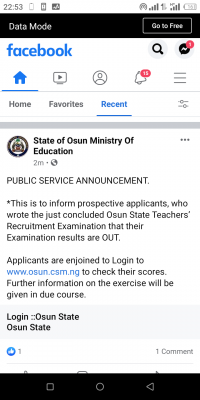
An interview is a conversation between two or more people, usually conducted in a professional setting, with the purpose of assessing the qualifications, skills, and suitability of a candidate for a job or other position. The interviewer typically asks you a series of questions, often related to your education, work experience, and relevant skills, to evaluate your abilities and determine your fit for the role.
Interviews question process can take various forms, including in-person interviews, phone interviews, video interviews, and group interviews. They may be conducted by one interviewer or a panel of interviewers, and may be structured or unstructured.
The first step to gaining employment begins with creating your Curriculum Vitae (CV) and then ends with preparing for possible interview questions to expect. As a job seeker or a potential job seeker, it is expected that when you are scheduled for an interview you should respond intelligently to questions thrown at you, in the best possible way.
It’s important to understand the type of interview you’ll be attending so you can prepare appropriately and demonstrate your skills and qualifications effectively.
Types of interviews
There are several types of interviews, including:
- Traditional/Structured Interview: This is the most common type of interview where the interviewer asks a set of predetermined questions to assess the candidate’s qualifications, skills, and experience.
- Behavioral Interview: This type of interview focuses on the candidate’s past behavior and performance to predict their future behavior in similar situations.
- Technical Interview: This type of interview is used to evaluate a candidate’s technical skills, knowledge, and expertise in a particular field.
- Group Interview: This type of interview involves several candidates being interviewed at the same time by one or more interviewers. It’s used to assess candidates’ ability to work in a team, leadership skills, and communication skills.
- Phone Interview: This type of interview is conducted over the phone and is typically used as an initial screening process to determine if a candidate is a good fit for the role.
- Video Interview: This type of interview is conducted over video conferencing software, allowing interviewers to evaluate candidates remotely.
- Case Interview: This type of interview is commonly used in consulting and finance industries, and involves presenting a real or hypothetical business case to the candidate and evaluating their problem-solving and analytical skills.
- Situational Interview: This type of interview presents hypothetical scenarios to the candidate and asks them how they would respond or handle the situation.
In this article, I will be listing the top 60 most commonly asked Job interview questions thrown at job seekers to take them off balance. Not to worry, I have equally calmed the tide by providing you with the best possible answers and responses when replying the interviewer.
Interviews allow employers and hiring managers to determine if an applicant is a suitable match for both the organization and the position for which they are applying. The interviewer can identify whether a person has the appropriate abilities, personality, and goals to join the team by asking preset questions. As expected, most interviewers have a range of questions they normally ask during an interview session. We would be discussing 20 most frequently asked job interview questions you as a job seekers should expect. So, what are the most typical interview questions for fresh graduates that you should anticipate being asked? Even better, what are the best responses to these top job interview questions?
We would be starting with some of the traditional interview questions;
20 Most Common Interview Questions For Fresh Graduates
1) Question ⇒ Tell me about yourself or Can I meet you? This is one popular question that most employers usually ask. As easy as the question appears to be, it might be rather complex. Take cautious not to reveal any personal information about yourself that isn’t absolutely essential.
This is your opportunity to give a brief overview of your education, work experience, and relevant skills. Keep your answer concise and focus on your professional achievements and goals.
Answer as a Customer Service Manager: I am a creative customer service manager with 6 years of expertise managing and monitoring all aspects of the customer care function—from resolving customer issues to assuring client retention to growing sales.
I’ve spent the last six years honing my talents as a customer service manager. I’ve received recognition and multiple honours, including three national ones. I like resolving client issues and ensuring that my team colleagues do as well.
Even though I enjoy my present work, I know I am ready to take on a more demanding role in customer service, which is why I am so enthusiastic about this opportunity. You can read further on how to answer job interview question on tell me about yourself.
2) Question ⇒ Why Do you want this Job? This could also be rephrased to “Why are you interested in this position”? Again, firms want to recruit people who are enthusiastic about the work, so you should offer a compelling explanation for why you want the position.
Answer: Talk about why the role aligns with your career goals and what you hope to gain from the position. Pick a couple of major aspects that make the work a good fit for you (e.g., “I enjoy customer support because I love the continual human connection and the gratification that comes from helping someone solve an issue”), and then explain why you like the firm.
You can include some of the things they are doing right and include that you would love to be a part of that process.
3) Question ⇒ Why do you want us to Hire you? This kind of question may throw a lot of job seekers off-balance, especially if they are not prepared to answer this kind of question.
Answer: There is no better situation for you to sell yourself than now, your task here is to develop an answer that addresses three points: that you can not only perform the work but also give excellent outcomes; that you’ll fit in well with the team and culture; and that you’d be a better hire than any of the other applicants.
4) Question ⇒ What will you bring to the organization? When employers/interviewers ask this question, they are not just interested in learning about your past. They want to see that you grasp the company’s or department’s problems and difficulties, as well as how you’ll fit into the present organization. You should read about the organization and find out how you can solve some of its existing problems.
Answer: With my expertise as a Senior Executive Director at my previous job, I would work with my team to drive the income for this firm by reforming the way we operate in the various areas.”
5) Question ⇒ What are your weaknesses? With this question, your interviewer is aiming to gauge your self-awareness and honesty in addition to looking for any major red flags.
Answer: Here you have to think of a weakness that you are working on, like “I find it difficult addressing a large number of people, but I have taken upon myself to take charge of any meeting we have in my organization.
6) Question ⇒ What are your strengths? Here’s an opportunity to discuss something that makes you great and a perfect fit for this position. You can decide to choose one or two qualities that are relevant to the position that you are applying for.
Answer for a managerial position: I am very good with people, in terms of working with them and organizing them to work on a specific task. This is something I have been able to learn from my experience in various roles as a leader.
7) Question ⇒ Can you tell us your greatest professional achievement? Nothing screams “hire me”! More than a good track record of achievements.
Answer: In my previous position as a junior analyst, it was my responsibility to oversee the billing process”), then explain what you did (the deed) and what you accomplished (the outcome): “In one month, I simplified the process, saving my company 10 person-hours per month and reducing invoice mistakes by 20%.”
8) Question ⇒ Why did you leave your last job or why are you leaving your current place of work? This is a very tricky question that tends to throw most job seekers off balance. Most job seekers leave their present place for a better offer but you don’t want to come out as a gold digger who leaves once there is a good offer somewhere else. However, It is also ok to let them know that you are looking for new opportunities.
Answer: I would want to be a part of product creation from start to finish, and I know I’d be able to do so here.”
9) Question ⇒ Tell me about one time you made a mistake? In this type of question, the goal is, to be honest without blaming others, then explain what you learnt from the mistake and what steps you have made to prevent it from happening again.
Answer: I remember one time I was in charge of organizing our yearly summit, during the course of the event, I discovered I omitted a particular speech by a top director and the process was delayed for 15 minutes before we could get his speech. It was a big eye-opener for me and I learnt to apportion responsibilities to each of my team members and try not to handle the majority of the work alone.
11) Question ⇒ Tell us about a time you disagreed with a decision made at work? The perfect tale in this case is one in which you handled a conflict professionally and learnt from the experience.
Answer: You have to be really careful with what you say here and you can start your sentence with “Early in my professional career, I realized that it’s okay to disagree as long as you can back up your hunches with physical evidence”. I disagreed with a certain way of solving a problem based on its previous results and then I suggested one I was certain would bring results.
12) Question ⇒ Why were you sacked? I believe a good number of people get sacked from their job and sometimes this kind of question may come up especially if the interviewer is aware that you were fired from your last job.
Answer: If you were laid off, you can simply state, “The company (was purchased, restructured/merged), and sadly my (role/department) was removed.” But what if you were dismissed due to poor performance? Your best bet is to be truthful. It doesn’t have to be a deal-breaker. Show that you have learnt from your mistake and you are ready to put in your best. “I didn’t perform at my best, but I have learnt how to be more efficient at my job”.
13) Question ⇒ What is your current salary or what would you like us to pay you? Don’t be thrown off balance by this question. You should have done your research about the company and how much they pay a person in your position.
Answer: I’ve done a lot of study on the [Company], and I’m certain that if it’s the appropriate fit, we’ll be able to come to an agreement on a price that’s fair and competitive to both sides.
14) Question ⇒ Tell us why you changed your career path? Don’t be alarmed by this question; instead, take a deep breath and explain to the recruiting manager why you’ve made the professional choices you have.
Answer: My past experience as a manager would be key in me performing well as a Senior Administrative Executive, as the responsibilities are not so different.
15) Question ⇒ How do you deal with pressure or stress? Most candidates may find it difficult to respond to this kind of question because it is very important to answer this question in the right way.
Answer: You can say “I meditate a little when I get stressed”, “I go for a walk” or “I find other ways to distract myself so I don’t get stressed”.
16) Question ⇒ What are your hobbies? Interviewers will occasionally inquire about your interests or hobbies outside of work in order to get to know you better to discover what you’re passionate about and dedicate time to during your off-hours.
Answer: I love playing football, I also watch football or I love to read, so I spend a lot of my off-time reading good novels/books.
17) Question ⇒ What motivates you? Consider that the interviewer wants to ensure that you’re enthusiastic about this position at this organization and that you’ll be motivated to succeed if you’re hired.
Answer: Talk about what drives you to succeed in your career. So, consider what has invigorated you in prior employment and what got you excited when you read this job description.
18) Question ⇒ What are your five (5) years plan or where do you see yourself in five years? If you are asked this question, be honest and detailed about your future aspirations, but keep this in mind: A recruiting manager wants to know a) if you’ve set reasonable professional objectives, b) if you are ambitio0us (i.e., this isn’t the first time you’ve considered the question), and c) whether the position corresponds with your goals and progress.
Answer: You can think about the position you are applying for and say where you think you should be based on that position, in the next five years. Also, it is still ok to say that “You are not certain what the future holds, but you believe this experience will be useful in assisting you in making that decision”.
19) Question ⇒ What makes you stand out from the rest? Make use of this moment to tell them something that will offer you an advantage over your competitors for this position.
Answer: I am a goal getter, and once I fix my mind on anything, I ensure that I do everything within my power to get it.
20) Question ⇒ What do you think we can do better? In this particular case, you have to be careful not to insult the company or the interviewer but be ready to give constructive feedback.
Answer: You can start with something positive about the company before delving into the changes you think they need to make. Like “The website of the company has some wonderful features that have really impressed me but it could be better if the website is fast and user friendly.
21) Question ⇒What are your strengths?
- Discuss specific strengths that would make you successful in the position you are interviewing for, such as attention to detail or leadership skills.
22. Question ⇒What are your weaknesses?
- Be honest but also show that you are working to improve upon any areas of weakness.
23. Question ⇒ Why do you want to work for our company?
- Show that you have researched the company and discuss what specifically appeals to you about the organization.
24. Question ⇒ Can you tell me about a time when you overcame a challenge?
- Provide a specific example of a challenge you faced and how you successfully resolved the issue.
25. Question ⇒ What are your long-term career goals?
- Show that you have a clear idea of where you want to take your career and how the position you are interviewing for fits into that plan.
26. Question ⇒ How do you handle stress or pressure?
- Discuss specific strategies you use to manage stress, such as prioritizing tasks or taking breaks.
27. Question ⇒ Can you work well under tight deadlines or with competing priorities?
- Provide examples of times when you have successfully managed competing priorities and met tight deadlines.
- Question ⇒ What are your salary expectations?
- Provide a realistic salary range based on the position and industry.
- Question ⇒ What do you know about our products/services?
- Show that you have researched the company and have a good understanding of the products or services they offer.
- Question ⇒ How do you work in a team?
- Discuss your experience working in a team and provide examples of times when you successfully collaborated with others.
- Question ⇒ How do you handle conflicts with coworkers?
- Provide examples of times when you successfully resolved conflicts with coworkers in a professional manner.
- Question ⇒ What is your approach to problem-solving?
- Discuss your approach to problem-solving and provide examples of times when you successfully solved complex problems.
- Question ⇒ How do you stay organized?
- Provide specific strategies you use to stay organized, such as making to-do lists or using digital tools.
- Question ⇒ How do you handle feedback?
- Discuss your approach to receiving feedback and how you use it to improve your performance.
- Question ⇒ What are your favorite hobbies or interests?
- Discuss hobbies or interests that demonstrate skills or characteristics relevant to the position you are interviewing for.
- Question ⇒ Can you tell me about a time when you demonstrated leadership skills?
- Provide a specific example of a time when you successfully led a team or project.
37. Question ⇒ How do you handle ambiguity or uncertainty?
- Discuss specific strategies you use to manage ambiguity or uncertainty, such as gathering more information or consulting with others.
38. Question ⇒What are your technical skills?
- Discuss any relevant technical skills you have that would be valuable in the position you are interviewing for.
- Question ⇒ How do you stay up-to-date with industry trends?
- Discuss specific ways you stay informed about industry trends, such as attending conferences or following relevant publications.
- Question ⇒What is your biggest professional achievement?
- Discuss a specific professional achievement that you are proud of and that demonstrates your skills and abilities.
41. Question ⇒ Can you tell me about a time when you had to adapt to a new situation?
- Provide a specific example of a time when you successfully adapted to a new situation, such as a new job or role.
- Question ⇒ What are some of your favorite skills to use on the job?
- Discuss skills that you enjoy using and that you excel at, such as problem-solving or communication skills.
- Question ⇒ How do you manage your time effectively?
- Discuss specific strategies you use to manage your time, such as setting goals and deadlines or using time-tracking tools.
44. Question ⇒What do you believe are the most important qualities for success in this role?
- Discuss qualities such as attention to detail, strong communication skills, or the ability to work independently.
45. Question ⇒Can you tell me about a time when you had to learn a new skill quickly?
- Provide a specific example of a time when you successfully learned a new skill quickly, such as learning a new software program or tool.
46. Question ⇒ How do you handle feedback from customers?
- Discuss your approach to receiving feedback from customers and how you use it to improve your performance.
- Question ⇒What do you consider to be your biggest professional challenge?
- Discuss a specific professional challenge you have faced and how you overcame it.
- Question ⇒ How do you stay motivated on the job?
- Discuss specific things that motivate you, such as working on meaningful projects or receiving recognition for your work.
- Question ⇒ How do you approach problem-solving in a team?
- Discuss your approach to problem-solving in a team and provide examples of times when you successfully collaborated with others to solve a problem.
- Question ⇒ Can you tell me about a time when you had to deal with a difficult customer or client?
- Provide a specific example of a time when you successfully handled a difficult customer or client and resolved the issue.
- Question ⇒ How do you stay organized when working on multiple projects?
- Tell your interviewer specific strategies you use to stay organized when working on multiple projects, such as creating a project management system or using a calendar tool.
- Question ⇒ What is your experience with project management?
- Discuss any experience you have with project management, such as leading a team or working on a complex project.
- Question ⇒ How do you handle constructive criticism?
- Discuss your approach to receiving constructive criticism and how you use it to improve your performance.
- Question ⇒ Can you tell me about a time when you had to work with someone you didn’t get along with?
- Provide a specific example of a time when you successfully worked with someone you didn’t get along with and how you resolved any issues.
- Question ⇒ How do you prioritize conflicting deadlines?
- Discuss specific strategies you use to prioritize conflicting deadlines, such as working on the most urgent projects first or delegating tasks to others.
- Question ⇒ What is your experience with customer service?
- Discuss any experience you have with customer service, such as working in a customer-facing role or resolving customer complaints.
- Question ⇒ How do you handle stress in a fast-paced work environment?
- Discuss specific strategies you use to manage stress in a fast-paced work environment, such as taking breaks or practicing mindfulness.
- Question ⇒ Can you tell me about a time when you had to make a difficult decision?
- Provide a specific example of a time when you had to make a difficult decision and how you came to your decision.
- Question ⇒ What is your approach to conflict resolution?
- Discuss your approach to conflict resolution and provide examples of times when you successfully resolved conflicts in a professional manner.
- How do you stay up-to-date with industry regulations and laws?
- Discuss specific ways you stay informed about industry regulations and laws, such as attending workshops or reading relevant publications.
Download ⇒ Job Interview Questions and Answers – PDF
In summary, if you have successfully gone through this list till the end, then congratulation is in other. This list would most definitely prepare you for most of the regular questions that interviewers ask job seekers. Which means that, you would be landing a job in no distant time. You can also prepare for role/responsibility related questions as you seek to land the job of your dream.




